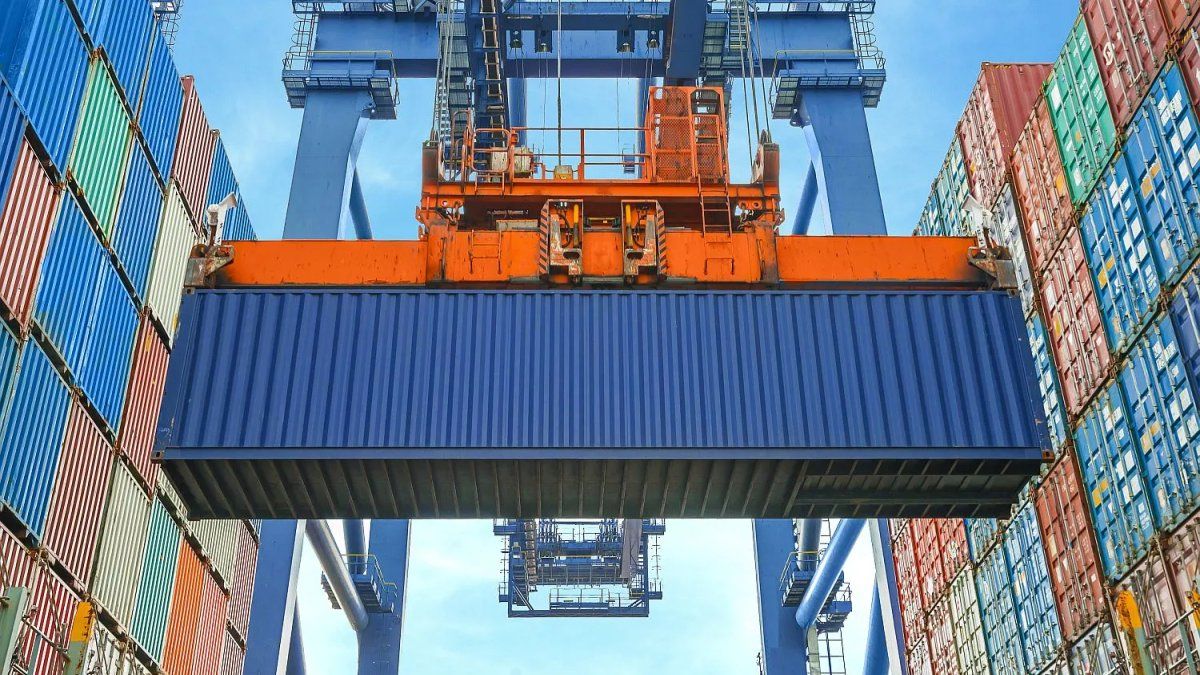To simplify access to the requirements and procedures, the Ministry of Industry and Commerce established a User Manual with the information that companies should know.
The Ministry of Economy through the Secretariat of Industry and Commerce will implement a beneficiary user manual of the Regime for the Importation of Goods for Large Investment Projects.
The content you want to access is exclusive to subscribers.
To simplify access to the requirements and procedures of the regime, a User Manual will be implemented that compiles all the relevant provisions. The Ministry of Industry and Commerce was designated as the Enforcement Authority. The decision was made through Resolution 485/2024 published this Thursday in the Official Gazette.


Imports: one by one, the main modifications established by Commerce
Article 2: The process to access the Goods Import Regime must be initiated through the Remote Procedures Platform (TAD) of the Electronic Document Management System (GDE), through the corresponding procedure.
-
Article 2 bis: Interested parties may make a Non-Binding Prior Framing Consultation through the same platform, to obtain a preliminary technical evaluation of your project. The Directorate of Industrial Evaluation and Promotion will have 10 business days to issue a technical report, and may request clarifications if necessary.
-
Article 4: A project will be considered to improve competitiveness if it meets at least one of the following conditions: cost reduction, productivity increase, technology incorporation, quality improvement or adoption of international standards.
-
Article 4 bis: Defines key terms such as:
- Complete production line: set of subsystems that transform raw materials into finished products.
- Complementary goods: essential elements for the functioning of the production process, such as laboratory equipment.
- Intermediate goods: locally produced goods that are integrated into the production process.
Article 5: The application must include information about the company, the project and the goods to be imported, as indicated in the Regime User Manual. In the case of bailment contracts, deadlines and addresses for the installation of the goods must be detailed, maintaining the responsibility of the applicant for their use and destination.
Article 8: Defines the requirements of the non-binding technical opinion, including:
- Description of the project, characteristics of the line and function of each asset.
- Evaluation of the technical framework and detailed list of assets.
- Analysis of previously acquired goods or extended deadlines.
- Supporting documentation: layout plans, production process diagrams and schedule (Gantt chart).
These modifications reinforce the technical and administrative requirements for projects that request benefits under the Regime.
-
Article 9: Regulates changes to the project that must be evaluated by the Application Authority, including:
- Incorporation or replacement of goods that require new import authorization.
- Extension or extension of deadlines for import or start-up, allowing only one request for extension and extension for each term.
- Change of possession of propertywhere the new possessing company must accept inspections and maintain project responsibilities. Updating the technical documentation will be necessary for these cases. No intervention is required if the modifications involve asset value or relocation.
-
Article 10: Establishes that the evaluation of projects will be carried out by the Undersecretariat of Foreign Trade and the Undersecretary of Productive Managementwith the possibility of consulting external entities, although the information will not be binding to grant the benefit.
-
Article 11: Establishes that the beneficiaries must constitute a guarantee in favor of the General Directorate of Customs for imported goods, in value equivalent to the excepted taxes, until the regime’s commitments are met.
-
Article 12: Regulates the accountability of the project, which must conform to the User Manual available on the official site. The surrender can be made before the maximum established deadlines, and must be signed by someone outside the beneficiary company. If non-compliance is detected, clarifications may be requested, and the release of guarantees will depend on the final resolution, which may be based on on-site verifications.
In turn, the resolution modifies several articles of Resolution No. 204/00 of the former SECRETARIAT OF INDUSTRY, COMMERCE AND MINING, establishing new rules for the importation of goods within the framework of an economic regime:
-
Evaluation of Projects and Modifications: The procedures for approving modifications to projects (change of assets, extensions, deadlines, etc.) are detailed, as well as the need to update technical and commercial documentation.
-
Accountability and Guarantees: Accountability is established according to a manual, with the possibility of requesting clarifications. Companies must provide guarantees before the General Directorate of Customs.
-
Sanctions and Audits: The procedure for the liquidation of economic sanctions and the management of audits is specified. A maximum period of 6 months is also established for accountability.
-
Information Requirements and Deadlines: The Enforcement Authority may request additional information, and companies must comply with the established deadlines.
-
Administrative Modifications: Certain previous articles are eliminated, repealing previous provisions and deleting some annexes.
-
New Import Procedures: Import instruments will be managed through the Argentine Foreign Trade Single Window Regime (VUCEA), optimizing customs controls.
Source: Ambito
David William is a talented author who has made a name for himself in the world of writing. He is a professional author who writes on a wide range of topics, from general interest to opinion news. David is currently working as a writer at 24 hours worlds where he brings his unique perspective and in-depth research to his articles, making them both informative and engaging.




